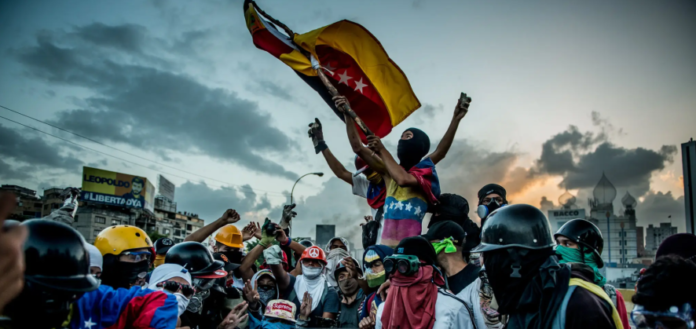Abstract
-
Venezuela is witnessing an average of 26 protests per day, with 3,900 protests recorded between January and May.
-
The majority of these protests are related to the demand for economic, social, cultural, and environmental rights.
-
The protests are primarily peaceful and are occurring in Caracas and all 23 states of the country.
Growing Discontent Against Maduro’s Regime: Venezuela Sees an Average of 26 Protests Per Day
Venezuela is witnessing a surge in public discontent against Dictator Nicolás Maduro’s regime, with an average of 26 protests occurring daily. According to the Venezuelan Observatory of Social Conflict (OVCS), there were 3,900 protests between January and May this year, primarily demanding economic, social, cultural, and environmental rights.
The Epicenter of Social Conflict
The majority of these protests, as explained by Marco Ponce, the general coordinator of OVCS, are centered around the demand for economic, social, cultural, and environmental rights. Of the total protests, 2,863 were motivated by the demand for labor rights, particularly to denounce the low minimum wage set by the regime, which equates to about five dollars per month.
Pensioners and Retirees Join the Protest
Pensioners and retirees, who also receive a meager five dollars per month, led 557 demonstrations demanding better income and denouncing that the money is insufficient to cover basic needs such as food or medicine.
Protests Over Poor State Services
In the first five months of the year, the NGO documented 340 protests related to the poor state of services, including complaints about electrical failures or lack of potable water, supplies that depend exclusively on the state.
The Peaceful Nature of Protests
Despite the high number of protests, they have remained largely peaceful. These demonstrations have taken place in Caracas and across all 23 states of the country. The peaceful nature of these protests underscores the Venezuelan people’s commitment to expressing their discontent within the bounds of law and order.
The Struggle of Public Workers
In May alone, the OVCS recorded 602 street demonstrations, most of which were driven by public workers’ organizations. These workers, who are at the forefront of public service, are feeling the brunt of the economic crisis and are demanding better working conditions and fair wages.
The Humanitarian Crisis
The increasing number of protests is a clear indication of the deepening humanitarian crisis in Venezuela. The regime’s failure to provide basic services and the deteriorating economic conditions are pushing more Venezuelans to voice their discontent. The protests are a desperate cry for help from a population grappling with poverty, inflation, and scarcity of basic necessities.
Conclusion
The escalating number of daily protests in Venezuela is a stark reflection of the growing discontent against Dictator Nicolás Maduro’s regime. As the humanitarian crisis deepens, Venezuelans are taking to the streets, demanding their rights, and calling for an end to the economic and social hardships they are facing. The peaceful nature of these protests underscores their determination to seek change through nonviolent means.









